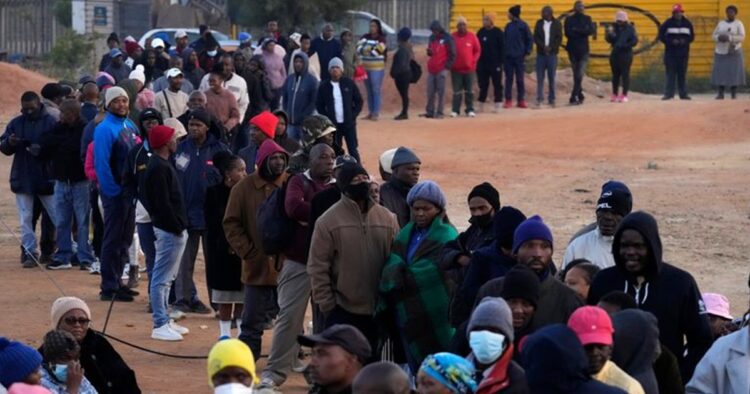South Africa is gearing up for what’s being called its most significant election in three decades. The vote, scheduled for Wednesday, could mark a turning point for the nation’s young democracy. The focus is on the African National Congress (ANC), which has been in power since the end of apartheid in 1994.
However, a new wave of dissatisfaction among the youth, half of whom live in poverty, poses a challenge to the ANC’s long-standing dominance.
The ANC, led by President Cyril Ramaphosa, faces criticism for not adequately addressing deep-rooted socio-economic issues. Despite promises of a better life for all, unemployment remains stubbornly high at 32%, with some experts arguing the actual figure is even higher.
Lingering inequality, particularly affecting the Black majority, threatens to erode support for the party credited with ending apartheid.
Ramaphosa has acknowledged the need for improvement, pledging to “do better.” However, the ANC’s appeal has waned in recent years, with support dropping below 50% in several polls leading up to the election.
This decline could result in the party losing its majority in Parliament for the first time, potentially necessitating a coalition government.
ALSO READ: “South Africa Urges ICJ to Intervene in Israel’s Rafah Assault”
The prospect of ANC losing its majority has sparked interest and concern among voters, especially the younger generation who have only known post-apartheid South Africa. For many, disillusionment with unfulfilled promises is leading to apathy towards voting. However, others see this as an opportunity for change, with over 50 opposition parties vying for support.

The opposition landscape is varied but fragmented, with parties like the Democratic Alliance and the Economic Freedom Fighters unable to pose a significant challenge to the ANC alone.
Nonetheless, dissatisfaction with the status quo is driving voters towards alternative options, including parties led by former ANC figures.
Despite challenges, the ANC remains confident of retaining power. Ramaphosa has highlighted the progress made since the end of apartheid, emphasizing the importance of democratic participation. Memories of the apartheid era still loom large, but as time passes, fewer South Africans remember it firsthand.
The election will take place across the nation’s nine provinces, with millions of voters expected to cast their ballots. Final results are anticipated by Sunday, revealing whether South Africa will maintain its political status quo or embark on a new era of governance.

















Comments